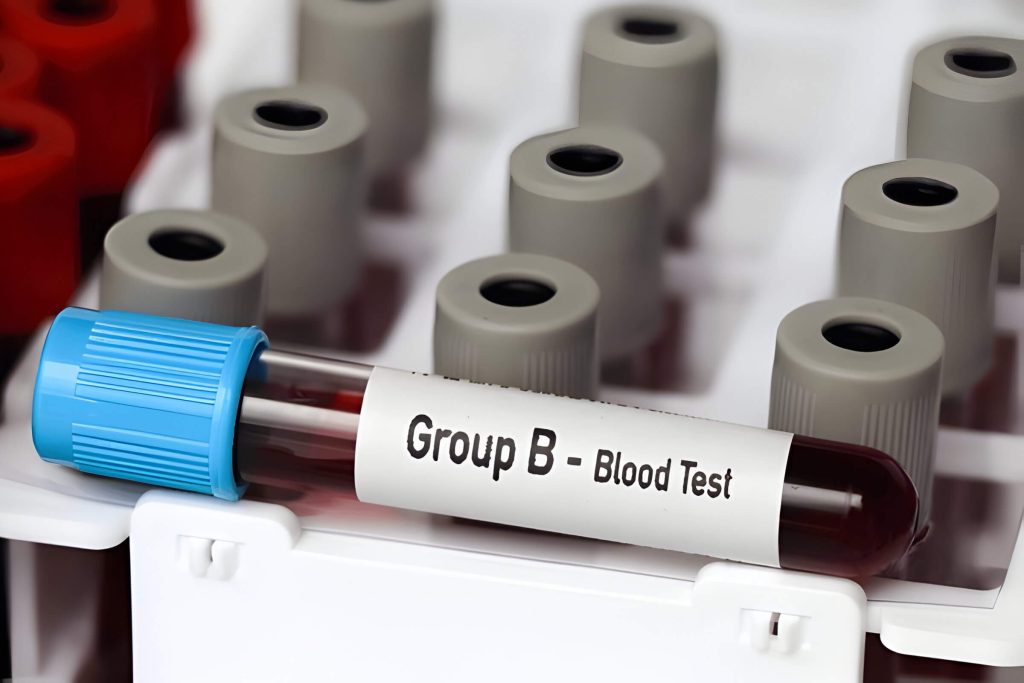The Blood Type Diet, developed by Dr. Peter D’Adamo, suggests personalized eating based on blood types. The Blood Type B Diet offers specific guidelines for individuals with this blood type. This introduction examines the diet’s principles, recommended foods, and potential benefits, while acknowledging the scientific debate about its effectiveness.
Understanding the Blood Type Diet Theory
The Blood Type Diet, popularized by naturopathic physician Dr. Peter D’Adamo, proposes that individuals should tailor their eating habits based on their blood type. This theory suggests that each blood type (A, B, AB, and O) has unique genetic characteristics that influence how the body processes different foods. According to Dr. D’Adamo, following a diet specific to one’s blood type can lead to improved health, weight management, and increased energy levels.
The diet’s core principle is that certain foods contain lectins, proteins that can potentially react with blood type antigens. Proponents argue that consuming foods compatible with your blood type reduces the risk of these reactions, promoting better digestion and overall well-being. For instance, the diet recommends that those with Type A blood focus on a plant-based diet, while Type O individuals are advised to consume more protein-rich foods.
While the Blood Type Diet has gained a following as a personalized nutrition approach, it’s important to note that scientific evidence supporting its effectiveness is limited. Critics argue that the genetic eating plan oversimplifies the complex relationship between diet and health. Nevertheless, the theory continues to spark discussions about individualized nutrition strategies and the potential role of genetics in dietary choices.
Characteristics of Blood Type B Individuals
Blood type B individuals possess unique characteristics that stem from their genetic makeup. These traits can influence various aspects of their health and lifestyle. One notable feature is their robust immune system, which tends to be more resilient against certain diseases compared to other blood types.
Metabolically, those with blood type B often have a balanced response to different food groups. They typically thrive on a diverse diet that includes both animal and plant-based proteins. However, they may experience sensitivity to certain foods like chicken, corn, and wheat.
Genetically, blood type B individuals are predisposed to maintaining a healthy weight when following an appropriate diet and exercise regimen. They often exhibit good stress management capabilities and tend to have a natural resistance to many common viruses and bacteria.
It’s important to note that while these characteristics are associated with blood type B, individual experiences may vary. Factors such as lifestyle choices, environment, and overall health can significantly impact how these traits manifest in each person.
Beneficial Foods for Blood Type B

People with blood type B can benefit from a diverse range of foods that complement their unique physiological characteristics. When it comes to meats, lamb, rabbit, and venison are highly recommended, as they tend to be easily digestible for type B individuals. Turkey and chicken can also be included in moderation.
Dairy products are generally well-tolerated by those with blood type B. Yogurt, cheese, and milk can be excellent sources of protein and calcium. However, it’s important to choose low-fat options to maintain a healthy balance.
Vegetables play a crucial role in the blood type B diet. Leafy greens like kale, collard greens, and spinach are particularly beneficial. Beets, sweet potatoes, and broccoli are also excellent choices, providing essential nutrients and fiber.
For fruits, bananas, grapes, and plums are highly recommended. These fruits offer a good balance of vitamins, minerals, and antioxidants that support overall health for blood type B individuals.
It’s important to note that while following a blood type-specific diet can be beneficial for some, it’s always advisable to consult with a healthcare professional or registered dietitian before making significant changes to your eating habits.
Foods to Avoid on the Blood Type B Diet
When following the Blood Type B diet, it’s crucial to be aware of certain foods that should be eliminated from your meal plan. These foods are considered potential irritants due to their lectin content, which may interfere with your digestive system and overall health according to this diet theory.
One of the primary foods to avoid on the Blood Type B diet is chicken. Despite being a popular protein source, chicken is believed to contain lectins that can be problematic for individuals with blood type B. Similarly, corn should be excluded from your diet as it’s thought to interfere with insulin production and metabolism in type B individuals.
Wheat is another food that Blood Type B followers are advised to avoid. This includes wheat-based products such as bread, pasta, and cereals. The diet suggests that wheat can lead to weight gain and fatigue in people with this blood type.
Other foods to be cautious of include tomatoes, peanuts, and sesame seeds. While these aren’t strictly forbidden, they should be consumed in moderation. By being mindful of these dietary restrictions and focusing on recommended foods, individuals following the Blood Type B diet aim to optimize their health and well-being.
Meal Planning for Blood Type B
Meal planning for individuals with blood type B requires careful consideration of food choices to optimize health and well-being. A balanced diet tailored to this blood type typically emphasizes a variety of lean meats, green vegetables, and specific grains. When creating meal ideas for blood type B, focus on incorporating foods like turkey, lamb, salmon, and eggs as protein sources. Leafy greens such as kale and spinach are excellent choices for vegetables, while grains like rice and oats can provide necessary carbohydrates.
To ensure balanced nutrition, it’s important to include a mix of proteins, complex carbohydrates, and healthy fats in each meal. Pay attention to portion sizes, aiming for moderate amounts that satisfy hunger without overindulging. A typical plate for blood type B individuals might consist of one-quarter lean protein, one-quarter whole grains, and half vegetables.
Meal frequency is another crucial aspect of blood type B meal planning. Many experts recommend eating smaller, more frequent meals throughout the day to maintain stable blood sugar levels and support metabolism. Consider planning for three main meals and two to three healthy snacks daily. This approach can help prevent overeating and provide a steady stream of energy throughout the day.
By following these guidelines and incorporating blood type B-friendly foods into your meal plans, you can create a nutritious and satisfying diet that supports your overall health and well-being.
Exercise Recommendations for Blood Type B

Exercise plays a crucial role in maintaining optimal health for individuals with blood type B. A well-rounded fitness routine can complement the blood type B diet and contribute to overall well-being. For those with this blood type, a balanced approach to physical activity is recommended, focusing on both stress reduction and moderate cardiovascular exercise.
Stress-reducing activities are particularly beneficial for blood type B individuals. Practices such as yoga and tai chi are excellent choices, as they combine gentle movement with mindfulness and breathing techniques. These exercises not only help to alleviate tension but also improve flexibility, balance, and mental clarity.
In addition to stress-reduction practices, moderate cardio exercises are essential for blood type B individuals. Activities like brisk walking, cycling, or swimming can help improve cardiovascular health, boost energy levels, and support weight management. It’s important to maintain a consistent exercise routine without overexerting oneself, as blood type B individuals may be prone to fatigue if they push too hard.
Incorporating a variety of physical activities into your routine can help you stay motivated and engaged. Mix up your workouts by alternating between yoga sessions, tai chi practices, and moderate cardio exercises throughout the week. This diverse approach will ensure that you reap the full benefits of exercise while adhering to the recommendations for your blood type.
Remember, as with any diet or exercise program, it’s essential to consult with a healthcare professional before making significant changes to your lifestyle. They can provide personalized advice based on your individual health needs and help you create an exercise plan that complements your blood type B diet effectively.
Potential Health Benefits of the Blood Type B Diet
The Blood Type B Diet, developed by naturopathic physician Dr. Peter D’Adamo, suggests that individuals with blood type B may experience several health benefits by following a tailored eating plan. Proponents of this diet claim that it can contribute to weight management, with adherents potentially seeing improvements in their body composition and metabolism. Additionally, the diet emphasizes foods that are believed to improve digestion for those with blood type B, potentially leading to reduced bloating and better nutrient absorption.
Many followers of the Blood Type B Diet report increased energy levels, which may be attributed to the diet’s focus on lean proteins and complex carbohydrates. These nutrient-dense foods can provide sustained energy throughout the day, potentially enhancing overall productivity and well-being. Furthermore, advocates suggest that the diet may play a role in disease prevention by reducing inflammation and supporting immune function through the consumption of specific foods that are thought to be beneficial for blood type B individuals.
While scientific evidence supporting the blood type diet’s effectiveness is limited, some people find that following these dietary guidelines leads to improved overall health. As with any dietary change, it’s essential to consult with a healthcare professional before adopting the Blood Type B Diet to ensure it aligns with individual health needs and goals.
Criticisms and Limitations of the Blood Type Diet
The Blood Type Diet has gained popularity in recent years, but it faces significant criticisms from nutrition experts and researchers. One of the primary concerns is the lack of robust scientific evidence supporting its claims. While the diet’s proponents argue that blood type influences how we process food, numerous studies have failed to find a meaningful correlation between blood type and dietary needs.
Individual variations in metabolism, genetics, and lifestyle factors play a crucial role in determining optimal nutrition, which the Blood Type Diet largely overlooks. This one-size-fits-all approach based solely on blood type may not account for the complex interplay of factors that influence an individual’s nutritional requirements.
Another limitation of the diet is the potential for nutritional deficiencies. Depending on one’s blood type, the diet may restrict entire food groups, potentially leading to imbalances in essential nutrients. For instance, individuals with Type A blood are advised to follow a largely vegetarian diet, which could result in inadequate intake of vitamin B12 and iron if not carefully managed.
Expert opinions from registered dietitians and nutritionists often caution against following the Blood Type Diet. They emphasize that a balanced, varied diet based on established nutritional principles is more likely to promote overall health than a restrictive regimen based on blood type. While some individuals may experience positive results from following this diet, these effects are likely due to an overall reduction in processed foods and increased consumption of whole foods rather than any blood type-specific benefits.
Combining Blood Type B Diet with Other Healthy Lifestyle Choices
Adopting a Blood Type B diet can be an excellent starting point for improving your overall health, but combining it with other healthy lifestyle choices can amplify its benefits. Taking a holistic approach to wellness involves addressing various aspects of your daily routine.
Prioritizing sleep quality is crucial for optimal health. Aim for 7-9 hours of uninterrupted sleep each night, creating a relaxing bedtime routine and maintaining a consistent sleep schedule. This can help regulate hormones, boost immunity, and enhance cognitive function.
Effective stress management techniques are equally important. Incorporate practices such as meditation, yoga, or deep breathing exercises into your daily routine. These can help reduce cortisol levels, improve mental clarity, and support overall well-being.
Proper hydration is often overlooked but plays a vital role in maintaining good health. Drink plenty of water throughout the day, aiming for at least 8 glasses. Herbal teas and infused water can also contribute to your daily fluid intake while providing additional health benefits.
Consider incorporating supplements that complement the Blood Type B diet. Consult with a healthcare professional to determine which supplements may be beneficial for your specific needs. Common options include omega-3 fatty acids, vitamin D, and probiotics.
By integrating these healthy lifestyle choices with your Blood Type B diet, you can create a comprehensive approach to wellness that addresses multiple aspects of your health and potentially enhances the diet’s effectiveness.
Is the Blood Type B Diet Right for You?
The Blood Type B Diet, while intriguing, lacks substantial scientific evidence to support its claims. While some individuals may experience positive results, it’s important to approach this diet with caution and skepticism. Before making any significant dietary changes, it’s crucial to consult with a healthcare professional or registered dietitian.
A balanced, varied diet that includes a wide range of nutrient-dense foods is generally recommended for optimal health, regardless of blood type. Instead of focusing on restrictive eating plans based on blood type, consider adopting a well-rounded approach to nutrition that emphasizes whole foods, portion control, and regular physical activity.
The best diet for you is one that you can maintain long-term, meets your nutritional needs, and supports your overall health goals. If you’re curious about the Blood Type B Diet, it may be worth discussing with a healthcare provider to determine if any aspects of it could be beneficial for your individual needs while ensuring you’re not unnecessarily restricting important food groups.
